


2025 to 2030
Forecasting the future of the global legal profession
President’s Podium:




Forecasting the future of the global legal profession
President’s Podium:





Former basketball star finds niche in another kind of court
page 12
Law Practice Management Board seeks ways to build upon strength of Primerus’s international reach
page 16
Cincinnati law firm takes year-end planning efforts to entirely different level
page 20
Division of Cincinnati law firm offers a fraternal law practice
page 24
Helping hands
Primerus firms embrace annual Global Day of Service
page 28
Newport attorney deftly handles host of challenging legal responsibilities
page 34
Attorney helps clients navigate ever-evolving cyber threat landscape
page 38
A 9/11 survivor put his memories of the tragic day into book form
page 42
Canadian lawyer utilizes his worldwide experience in biodiversity conservation to tackle environmental cases
page 44
Primerus Member Law Firm Directory
Page 48
By Tom Kirvan

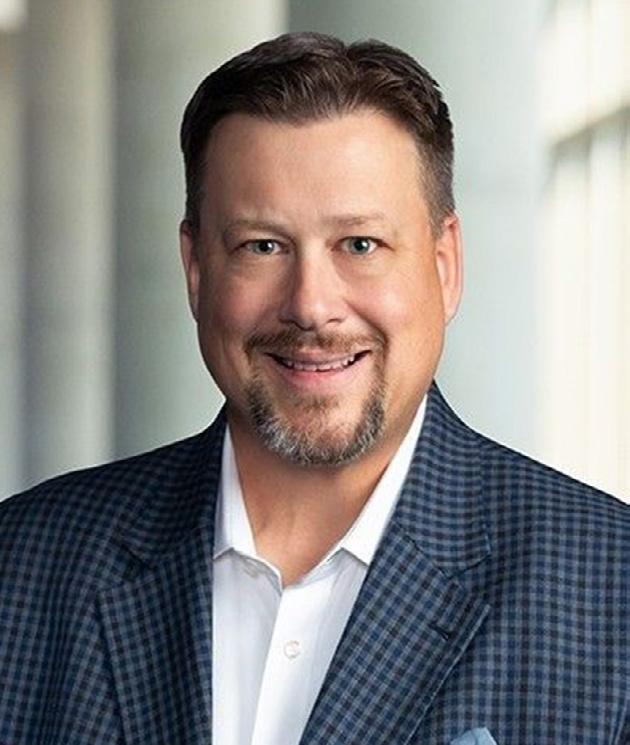

If only we had a crystal ball, the glowing sphere used by fortune-tellers to predict the future with some sort of reliability on matters concerning love, finances, or, perhaps, even the look of the legal profession over the next five years.
The business of forecasting real trends in the legal arena is a daily exercise for Patrick Fuller, the chief legal industry strategist at ALM, which bills itself as the world’s most trusted information, intelligence, and data company.
A Wisconsin native, now based in Oklahoma City, Fuller regularly crisscrosses the country meeting with some of the top thinkers in the legal profession to better gauge where the industry is headed in the age of artificial intelligence (AI).
“I did 37 in-person engagements last year,” said Fuller of his busy schedule delivering presentations and programs before legal audiences around the country. “I travel a lot, to say the least, and although conducting meetings in the virtual realm can be great, I’m old-school in preferring to read the body language in an in-person meeting. There’s also no substitute for pressing the flesh and getting to know what resonates with each individual.”
Fuller was scheduled to be one of the keynote speakers at the 2024 Primerus Global Conference last October in Asheville, N.C., but the event was cancelled because of the trail of death and destruction left by Hurricane Helene, which turned a scenic and thriving community into a post-apocalyptic landscape within a matter of days.
If the event had gone off as scheduled, Fuller would have made his second appearance at a key Primerus meeting last year after speaking at the 2024 International Summit in Miami.
“As I reflect on 2024, it’s clear that the legal industry continues to evolve at an unprecedented pace,” Fuller declared. “Over the past year, I’ve had the privilege of engaging with law firm leaders, general counsel, LPM (Legal Project Management) professionals, and industry experts at conferences, retreats, and roundtables. These conversations have illuminated key trends and challenges that will shape the profession’s trajectory – from adapting to multigenerational workplace dynamics and harnessing AI-driven innovation to confronting profit leakage and rethinking client relationships.”
The topic that stood out the most during his engagements was multigenerational differences in the law firm workplace, according to Fuller.
“Notable challenges include communication styles, technology usage, and work-life balance,” he indicated. “Younger lawyers, as digital natives, adapt more readily to evolving legal technology, while differing career aspirations and attitudes toward work ethic create generational tension. These discussions echo similar concerns voiced across generations, highlighting the cyclical nature of workplace evolution.”
In the post-COVID legal world, Fuller found some dramatic changes have taken place while other adjustments in work routines have been modified since the pandemic ended.
“Hybrid and remote work policies remain diverse, with most firms requiring at least three in-office days weekly, often supplemented by innovative office designs emphasizing collaboration and amenities like coffee bars,” Fuller observed. “Some firms have even engaged behavioral psychologists to optimize workspaces, starkly contrasting traditional office environments of past decades.”
When firms invest in a unique office space, Fuller said that they would be wise to remember a long-held economic truth that all businesses must be able to compute the future cost of current decisions.
“The failure to do this, known in behavioral economics as ‘hyperbolic discounting,’ explains how people value immediate rewards more than future rewards, even if the future rewards are significantly greater,” Fuller noted. “This generally leads to decisions that favor short-term fulfillment over long-term benefits.”
In surveying the legal scene over the past year, Fuller discovered that professional development budgets remain disproportionately low compared to budgets for marketing and business development.
“Most firms increased these (professional development) budgets annually by less than 10 percent despite consistent headcount growth,” he related. “This under-investment highlights missed opportunities to strengthen the firm’s core product: its lawyers.”
The seeming reluctance by most firms to invest in human capital can prove decidedly costly in the long run, Fuller said.
“High turnover, especially among attorneys, disrupts client relationships and can impact internal culture, signaling instability to recruiters and clients,” Fuller claimed. “Increasing investments into team members’ success – effectively creating an ‘invisible moat’ around the firm – can help retain valuable contributors and protect profitability.”
Fuller, who devours data for a living, admits to being a “geek,” a characterization that affords him a different perspective on the legal profession.

“I don’t want to look at something and see what everyone else sees,” declared Fuller, a 53-year-old father of three. “I want to see what other people aren’t seeing, and I want to use the data in a way that tells a different story.”
Some of the resistance to cultural change comes from the inherent nature of the legal profession, according to Fuller.
“We’re dealing with a profession that is precedent based,” he noted. “The legal profession is so precedent-driven that even utilizing new methods for generating fresh opportunities can be challenging in some firms.
“This is critical, as one of the foundational strategic questions I often ask is whether firms are innovative in their thinking about where to discover new opportunities and whether they see opportunities their competitors do not,” added Fuller.
Fuller said a new tipping point for the profession has arrived in the form of AI, the set of technologies that allows computers to perform a variety of functions traditionally performed by humans. How lawyers and law firms utilize generative AI (GenAI) – which creates data or content that looks like it came from a human – will be particularly telling, he predicted.
“GenAI is set to transform large law firms by streamlining legal research, document drafting, and contract review. This will enable attorneys to focus on high-value tasks like strategy and advocacy. GenAIpowered predictive analytics will provide deeper insights into case outcomes and client needs, enhancing decision-making and client counseling.
“While GenAI offers immense potential, firms must address ethical compliance, data security, and workforce adaptation challenges. GenAI’s rapid adoption could reshape talent models, emphasizing
tech-savvy hires and retraining existing staff.
“Early adopters will gain a competitive edge, while resistance to change may widen the gap between innovative and traditional firms. GenAI’s ability to personalize client interactions and predict trends will also become a cornerstone of client retention and business development strategies.”
Those three paragraphs, Fuller stressed, were authored by ChatGPT and edited by Grammarly.
“In other words, AI was correcting AI,” Fuller said with a sense of amazement. “What better authority on GenAI than GenAI itself?”
It’s a question for the ages – this one in particular. Which leads Fuller to offer a prediction about AI in the legal world.
“As AI is increasingly adopted within law firms, it will enable lawyers to focus on high-value activities like strategy and
client engagement while automating routine tasks such as budgeting, mattertracking, and document analysis. This will lead to more objective, data-driven decision-making, and consistent client outcomes.”
An area where Fuller believes AI might have an immediate impact on midsize firms is its use in early case assessment (ECA) models. These models leverage vast datasets, including outcomes, settlements, sentiment analysis, and anomaly detection, to uncover hidden risks and potential opportunities with unprecedented speed and accuracy.
“ECA could reshape law department matter management strategies by suggesting that cases often settled, proceed to trial, or that matters typically outsourced to outside counsel, could instead be settled at significantly lower costs,” Fuller indicated.
Of special interest to boutique firms, Fuller said, is the enormous amount of legal work that AI companies could require.
“Over the next 10 years, I expect that annual recurring revenue for AI companies will surpass $5 trillion, translating into $8 billion to $12 billion in outside counsel spending. Globally, many of these companies do not have the funds to hire the Global 50 firms. I believe this creates a significant opportunity for midsize firms.”
As such, Fuller said that legal alliances like Primerus can offer significant value to high-quality independent law firms searching for ways to compete in a global marketplace where Big Law has traditionally ruled.
“Law firm alliances like Primerus can be game changers for high-quality independent law firms, expanding their reach and empowering them to thrive in a global marketplace often dominated by larger firms with greater resources and wider margins for error,” Fuller declared. “By fostering collaboration, sharing resources, and enhancing international reach, these networks offer a collective competitive advantage while preserving the individuality and excellence of their member firms.”

John C. Buchanan


Many respected observers saw 2024 as a transformative year for the legal industry, driven in part by the rise of generative AI and its profound impact on a profession that has been described metaphorically as the oil in the engine of a smoothly working society.
What happens over the next five years (2025-30) figures to be just as intriguing, particularly for the small- and mediumsized law firms that largely have comprised the legal profession for the past century.
Independent firms have a storied history with Primerus, which was founded in 1992 to help bolster the standing of the legal profession in the eyes of the public. We were formed at a time when lawyer jokes
were seemingly at the tip of everyone’s tongue and when the irreverence of “My Cousin Vinny” replaced Atticus Finch of “To Kill a Mockingbird” as the predominant image of the American lawyer.
Our first plan, in a series of five-year plans, covered 1995 to 2000, and featured the building of an infrastructure to help attract and then provide services to new members. Part of that task involved promoting our “Six Pillars,” a concept upon which our mission was built. In effect, the Six Pillars serve as the soul of Primerus, representing a vow of integrity in all dealings and a commitment to excellence in work product. The concept also embodies a promise of delivering exceptional work at a reasonable legal cost, coupled with an underlying belief in the importance of civility and a
corresponding desire to perform acts of community service.
From 2000-05, our second five-year plan revolved around promoting the Primerus brand, as we invested heavily in a series of ads that appeared in magazines and newspapers, as well as in broadcast media. Those efforts captured the attention of the public and major media outlets and appeared to energize the legal profession itself as lawyers and judges responded positively to a campaign that portrayed them in a much better light.
In the third segment in our series of plans, from 2005-10, we established various practice groups and institutes for Primerus members, an innovation designed to assist in practice

management development. The move coincided with the presentation of the first PDI Convocation, the first event where clients took part in a Primerus program. The time span also was marked by dramatic growth, as we doubled our size to nearly 100 firms.
From 2010-15, and then during 2015-20, we continued that growth on a global scale, attracting an additional 50 Primerus members from countries around the world, giving us a legal presence on a number of continents, including Asia and South America. As with other Primerus members, those new firms were meticulously vetted for integrity and quality, combined with their commitment to provide partner-level service at a reasonable cost.
When a new decade began in 2020, we adopted a new five-year plan just weeks before the world went into a deadly tailspin because of COVID-19, a global pandemic that has claimed more than 7 million lives since its outbreak.
Suddenly, and totally unexpectedly, we had to indefinitely delay the implementation of the plan designed for 2020-25. Instead, we were forced to adapt to a new way of conducting business, one where remote work became mandatory in an effort to contain the spread of the coronavirus. Consequently, all in-person events, meetings, and programs were cancelled. Masks – and in some cases elaborate PPE (personal protection equipment) – were required in stores, hospitals, offices, and other public settings. In the wake of the upheaval caused by COVID-19, the
workplace underwent colossal change, ushering in the virtual meeting era and the corresponding work-from-home model, portending a significant change in the way a large segment of the workforce would operate in the future.
The radical shift, in many ways, has produced positive outcomes for Primerus, as significant investments in our stateof-the-art website and video technology have provided us with the capability to instantly connect with members around the globe. It has also afforded members of our staff – and those with Primerus firms – the opportunity to work remotely, an attractive option that has broadened the pool of potential employees we all can attract.
Now, at the onset of the first quarter of 2025, we have unveiled a new five-year plan designed to expand upon the international growth that Primerus has recently experienced in the African, Middle Eastern, and Asian regions. It also showcases our transformation into a digital company that values team management systems and innovative approaches to effective communication through various platforms.
Continued global growth will coincide with efforts to expand our footprint in the United States, particularly in smaller cities where opportunities exist to enter the consumer markets of the legal profession, such as family law, immigration law, criminal law, estate planning, and labor law.
As the first component of this five-year plan, growth will fuel our efforts to become a “virtual law firm” for Primerus members, accelerating the goal of having a presence wherever commerce takes place.
Relatedly, growth will supply the funding for our second component: enhanced membership services, providing the marketing and technological tools to drive more referral business. The growth will be framed in “collaborative” terms, dispelling all notions that it will lead to any competitive disadvantage in markets where there has been just a singular presence, especially in countries across Europe.
Part three of our plan is to further build the Primerus brand in an effort to make it a household name in markets big and small, symbolized by our first trademark,
“Good People Who Happen to Be Good Lawyers.” The eight-word phrase will forever identify us as an organization dedicated to the principles of character, capability, and commitment. From our beginning, we have emphasized the importance of attracting good people, members who strive each day to be the best they can be by displaying a moral compass that points true north.
The fourth component of our new plan is to expand the scope of resources we offer, including continued upgrades to our website that will soon feature enhanced language capabilities. Our digital tools are all designed to be user-friendly, serving as a vehicle for promoting the Six-Pillar message of Primerus and underscoring the importance of developing ways to leverage the strength of a global organization in the areas of cybersecurity, cloud

computing, artificial intelligence, and business development.
A prime example is the recent creation of the Law Practice Management Board (see related story starting on page 16). The primary purpose of the board is to identify ways Primerus can act as an umbrella organization to improve the buying power of member firms in such areas as health insurance, professional liability insurance, legal research, and human resources. The board will help set the stage for moving Primerus from what is now a business development and referral organization to a growing global entity that supplies the infrastructure for independent firms to compete on an equal footing with the giants of the legal world.
The fifth and final component of our five-year plan is to strengthen a commitment to community service, building on an underlying desire to “do good” in a world filled with unmet needs and challenges. Such work can channel our collective energy and ingenuity to promote a new pathway to progress, thereby serving as a unifying force for getting things done in a constructive and enduring fashion.
Lawyers possess the talents and tools to make a profound impact for the world at large, contributing in myriad ways to improve the lives of the vulnerable and disadvantaged, while also safeguarding our inalienable rights and the rule of law. These are the moral responsibilities that bind us together and ensure our place as the foremost peacemakers and protectors in civilized society.
Best Regards,


By Brian Cox


When Elizabeth Nicholson was inducted into her high school’s Athletics Hall of Fame in 2021, she reflected on the profound impact basketball had on her life, telling the Index-Journal that the sport “prepared me for the rest of my life by teaching me the value of teamwork, dedication, and working toward a shared goal – lessons that fueled my drive to succeed and my desire to win, both on and off the court.”
Now an attorney at the Charleston-based law firm Rosen Hagood, Nicholson’s journey began in Greenwood, S.C., where she excelled as a three-sport varsity athlete at Emerald High School, playing basketball, softball, and tennis. On the court, she was a force, earning AllLakelands Basketball Player of the Year honors as a junior. By the end of her high school career, she had scored 1,285 points and set the school record with 1,048 rebounds – a record that still stands.
Founded in 1670, the city of Charleston, S.C. exudes antebellum charm with its picturesque downtown and scenic coastal location.

Nicholson also played center and forward for an AAU travel basketball team in Greenville, forging lifelong friendships with teammates from diverse backgrounds. Reflecting on this time, Nicholson credits those experiences with shaping her perspective on privilege and community.
“Through sports, I was fortunate to connect with people from diverse communities, which opened my eyes to
the different challenges others face,” she recalls. “Those experiences taught me acceptance, broadened my perspective, and inspired me to support and uplift those in need.”
That passion for supporting underserved communities has carried into her professional and personal life. Nicholson sits on the boards of two Charlestonbased nonprofits: Going Places, which provides free bikes, helmets, and locks to students, and Yo Art, which equips underserved schools with media arts technology to engage students in photography, videography, filmmaking, and coding. At Rosen Hagood, she also serves as Culture and Community Service Chair, spearheading initiatives that enhance community outreach and cultural awareness within the firm.
A fourth-generation lawyer, Nicholson’s roots in Greenwood run deep. Her greatgrandfather, William H. Nicholson Sr., founded a law firm there in 1904, a legacy continued by her grandfather, father, and brother at what is now Nicholson, Meredith & Anderson, LLC.
“My parents were deeply involved in the community and seeing them care so much about helping others inspired me to pursue a career in law,” she recalls.
Nicholson’s path to the law wasn’t straightforward, however. After high school, she attended Emory University in Atlanta, where she intended to play basketball. However, she decided to step away from the demand of athletics to focus on enjoying her time in college, transferring to the College of Charleston, where she majored in historic preservation and community planning.
Following graduation, Nicholson traded academia for the slopes, moving to Colorado to ski and work in the restaurant industry.
“I loved the ski-bum lifestyle,” she says with a laugh. “But I knew it wasn’t sustainable.” The 2008 recession eventually prompted her to consider her next steps, and law school felt like a natural choice.
Returning to South Carolina, Nicholson enrolled at the Charleston School of Law, where she thrived. Taking time away from academics allowed her to gain perspective and experience life outside of school.
“When I returned to school, I had a deeper appreciation for the value of education and lifelong learning,” she reflects. During law school, she served as treasurer of the Public Interest Legal Society and interned

Elizabeth gets help from her husband, Rory Wojcik, and stepchildren, Clara and John, at a booth promoting Going Places, a Charlestonbased nonprofit that provides free bikes, helmets, and locks to students. She also serves on the organization’s board.

at Rosen Hagood, laying the groundwork for her future career.
After earning her law degree, Nicholson clerked for Judge R. Lawton McIntosh of the Tenth Judicial Circuit in South Carolina before joining Rosen Hagood in 2016. She gravitated toward civil litigation, finding its challenges and opportunities for problemsolving deeply rewarding.
“I like finding answers, piecing together a story, and working through things logically,” she says.
Today, Nicholson’s practice spans business and commercial litigation,
construction law, personal injury, real estate litigation, and employment law. In her construction law work, she represents general contractors, subcontractors, and homeowners in disputes involving defects, mechanic’s liens, and payment issues.
Nicholson values the team-oriented culture of Rosen Hagood, which mirrors the camaraderie she cherished as an athlete.
“It feels like a team where everyone cares about each other and wants the best for one another,” she says.
That collaborative spirit, coupled with the firm’s focus on professional growth and community involvement, has been a perfect fit.
“I’ve always enjoyed being part of a team that works hard toward a common goal – and, of course, I love to win,” she adds with a smile, reflecting the competitive drive that continues to inspire her.
“If you’re passionate about a particular area of law, the firm supports you in developing your practice,” Nicholson explains. “It’s a great place to grow –professionally and personally.”

By Brian Cox
Leverage – it’s a word that members of Primerus’s newest committee use often when articulating its ambitious undertaking.
Behind the creation of the Law Practice Management Board is a visionary idea: leveraging the organization’s size and breadth to offer members added value through practical education on running a firm and potential cost-saving opportunities.
“The committee’s purpose is to provide some of the tools that we all wish we had when we started our firms,” says Frank

Szilagyi, the managing partner of Szilagyi & Daly in Hartford, Conn. who has more than 30 years of experience as a trial lawyer and is one of the six inaugural board members.
The board represents a broadening of Primerus’s relationship with and service to its more than 150-member law firms beyond the networking value it offers. Since its inception, Primerus has been a community of attorneys all over the world who share common values and goals.
What if they could share other resources as well?
“Primerus has always afforded firms the opportunity to offer their clients the resources of a larger firm through referrals,” says Roger Brothers, the founding partner of Brothers Smith LLP in Walnut Creek, Calif., who “got his feet wet” years ago on the management committee at a larger firm. “Now we’re asking how Primerus can pool those resources to negotiate better deals, for example.”
The Law Practice Management Board is comprised of members who represent a cross section of practices and law firm sizes. The board intended to stage its unveiling at the 2024 Primerus Global
Conference in Asheville, N.C., where it was scheduled to present a panel on succession planning strategies. The conference, unfortunately, was canceled due to the devastation caused by Hurricane Helene, so the board converted the program to a webinar that can be viewed on the Primerus website. Going forward, the board plans to offer six webinars over the course of the next year.
A primary focus of the board, according to its chair, Brian Gilman, is to identify ways Primerus might act as an umbrella organization to improve the buying power of member firms in such areas as health insurance, professional liability insurance, legal research, recruiting services, and technology.
“The goal is to create some efficiencies of scale that the Primerus membership as a whole could benefit from,” says Gilman, who is chief operating officer at Smith Debnam Narron Drake Saintsing & Myers, LLP in Raleigh, N.C. where he directs the firm’s financial and operational
aspects, including human resources, information systems, marketing, facilities support, strategic planning, and business development.
“I’m a unicorn in Primerus, a professional law firm manager,” says Gilman, whose more than 20 years in legal management make him an ideal chair for the Law Practice Management Board. “Most firms in Primerus are not of a size to have the bandwidth for a professional manager.”
Which, in a manner, is where the Law Practice Management Board could prove beneficial.
As envisioned, the board would help Primerus law firms take advantage of the organization’s size and the scope of its members’ knowledge and experience. Law firms facing challenges ranging from how to handle cybersecurity to succession planning and human resource management could find support from the board, which has as one of its aims to act as a clearinghouse for practical guidance

and vetted best practices. It hopes to create a forum where law practice management concerns can be discussed and heard.
What’s worked? What hasn’t worked? What needs to be tweaked?
“The committee was put together to facilitate the gathering of information so that every firm isn’t stuck reinventing the wheel when it comes to a lot of common law firm management issues,” says board member Rich Cohn, who, as president of Earp Cohn P.C. with offices in Cherry Hill, N.J. and Philadelphia, has been involved in dealing with myriad law firm management issues and concerns for decades.
“Where I see the board’s real power and leverage is in the exchange of knowledge because there is so much that each board member has to contribute,” echoes Muliha Khan, an equity partner at Zupkus & Angell, P.C., a WBENC-certified women and minority owned law firm in Denver. “There are some unique challenges that all
businesses are facing. And I felt as though not only could I contribute to the board, but I could learn from it.”
At one of its first meetings, the board discussed issues around hiring and retaining attorneys. Khan says the discussion was productive in hearing members’ insights into the hiring resources they used, the challenges they are facing in keeping employees, and what


they are doing to prevent them from being poached by larger firms.
“This board is an opportunity to address black-and-white stuff, like health insurance, malpractice insurance, and using technology,” says Khan, “but also to have discussions about systemic challenges that are much more difficult to solve, such as why aren’t there more women and minority equity partners?”
For now, the board is still in the “brainstorming phase,” according to Gilman.
“We want this to be an ongoing, interactive board,” Gilman says. “We’re only as smart as our own experience.”
Brothers adds, “If anybody has any question or thinks of anything that may be appropriate for us to look into to address, we’d love to hear from them because questions lead to answers.”
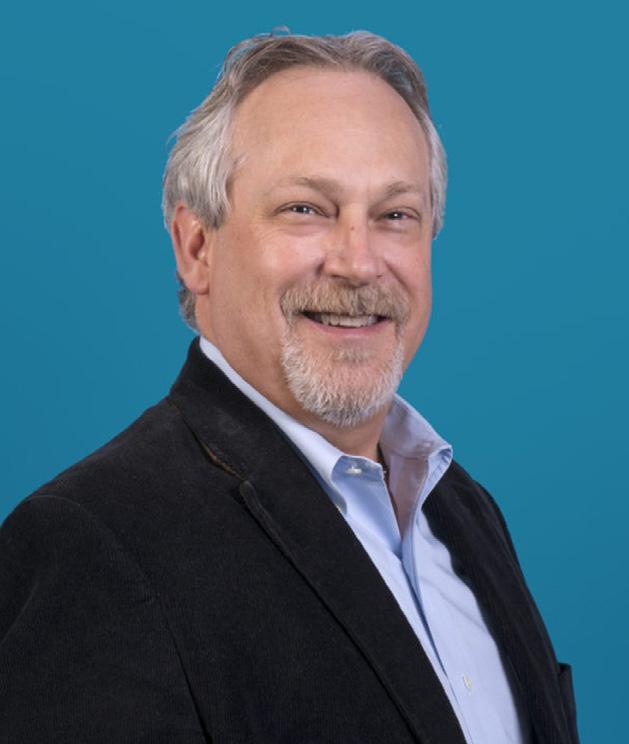
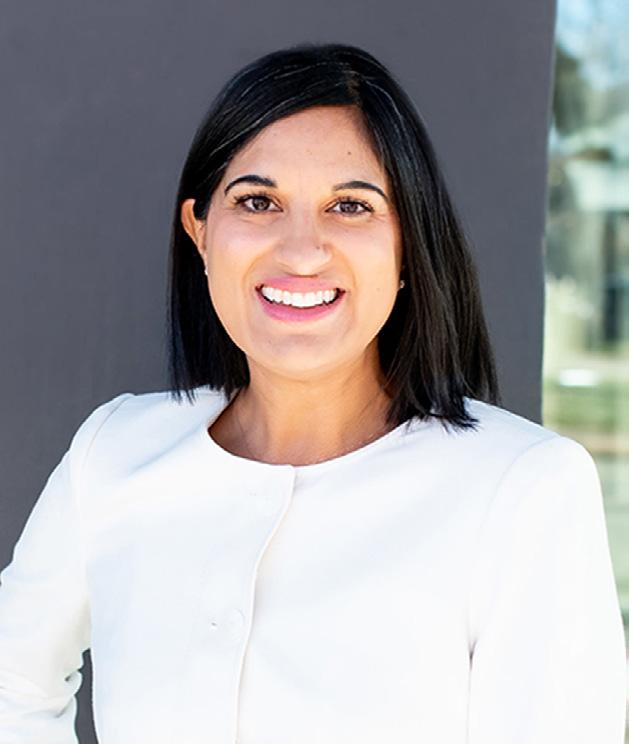
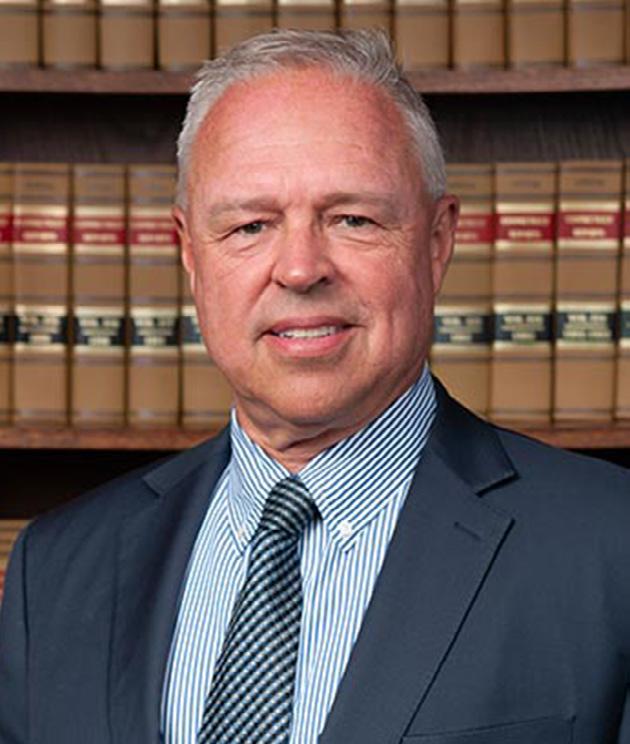
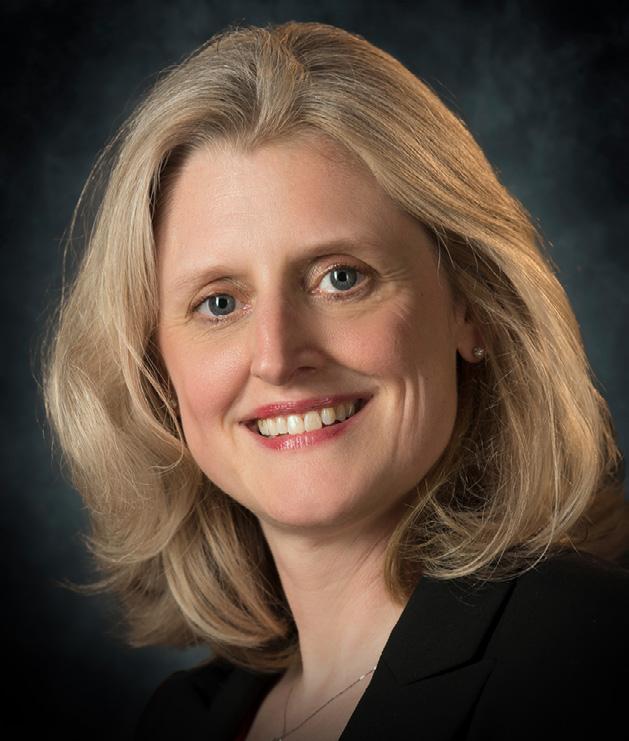


By Tom Kirvan


P.
Partner Manley Burke
Year-end planning is a year-round endeavor for attorney Sean Callan and the leadership team at Manley Burke in Cincinnati.
In fact, the executive committee at Manley Burke approaches year-end planning on a month-by-month basis, systematically scrutinizing the firm’s financial records, settling any outstanding receivables, and strategically planning budgets for the upcoming year, according to Callan, who specializes in commercial real estate law for the firm that was founded in 1979.
“At least in our case, we’re doing that all the time,” said Callan of the year-end checklist that includes billings, collections, budgeting, staffing, and tax planning matters. “It’s not like you get to September and decide it’s time to start planning for the end of the year. As soon as we close out one year, we start planning for the end of the next year.”
“We try to roll over into the next year the same amount of cash that we had at the beginning of the year, using it as a cushion to start the new year,” Callan explained. “But we’re also thinking about what our needs will be for next fall in terms of personnel and what we project business to be like. We like to have a sense today of where we’re going to be nine to twelve months from now.”
The ongoing review enables the firm to maintain an adequate staffing level to meet its work needs, Callan indicated.
“The last thing we want to be is overstaffed, putting us in a position where we have to let someone go because we don’t have the necessary work,” he declared. “But we also want to be sensitive to the fact that part of what we’re selling as a firm is that we’re not going to burn you up, that this is a good place to be, where you can have a life outside of work. We’re trying to thread
the needle where we have enough people to get the work done without having too much capacity.”
The firm, which has grown to 16 attorneys, bills itself as “Big Law Talent, Small Law Agility,” a phrase that speaks to a culture where a work-life balance is highly valued, according to Callan.
“When you work at a large firm, you have to navigate the political landscape that comes with it, which can be an extra job in itself,” said Callan. “When I came here [in 2012], I did so because I determined that I could eliminate that whole dynamic. Here we can concentrate on generating business and providing high quality legal services, and we’re going to attract good people who feel the same way. And that is what we have done.”
A Virginia native, Callan was an only child whose late father, Mike, was a Secret Service agent for much of his career, serving during the Johnson, Nixon, Ford, and Carter administrations.
“We moved around quite a bit because of my father’s job, living mostly along the Atlantic seaboard before he was
stationed in Cincinnati during his final stop,” said Callan. “He began work with the Secret Service right after the Kennedy assassination and was assigned to the detail for Secretary of State Henry Kissinger during the Nixon years. I was privileged to meet Secretary Kissinger a couple of times.”
Callan’s mother, Joy, worked as a systems analyst before entering the world of academia as a business professor, first at a community college and then at the University of Cincinnati, where she was honored with the Cohen Award for Excellence in Teaching.
“She taught business classes for 30 years and now lives 20 minutes away from me,” Callan said of his mother, who earned her MBA from the University of Cincinnati.
A Dartmouth alum, Callan graduated with honors from the Ivy League college in New Hampshire, obtaining his juris doctor in 1993 from the University of Cincinnati. He began his legal career with the U.S. Department of Justice in Washington, D.C., handling asset forfeiture cases on an assignment basis before returning to Cincinnati where he worked with several
Nicknamed the Queen City, Cincinnati is the third most populous city in Ohio with 311,000 residents.

firms – small and large – in the real estate, land use, and zoning areas.
“I spent 10 years with Dinsmore, a Cincinnati based firm with more than 850 attorneys,” said Callan. “They have been around for more than a century and have offices all across the country. It’s one of the biggest firms in the nation.”
In 2012, Callan made the move from Big Law to Manley Burke, where “we have Big Law caliber people working in a small firm setting,” he remarked.
“We’ve enjoyed steady, organic growth since I came here, and we take great pride in the quality of the work that we produce,” Callan said of the firm that joined Primerus in early 2024.
“We would have loved to have joined Primerus five years earlier, but there wasn’t an opening in this market until this year,” Callan indicated. “We’re delighted to be part of an organization that is international in scope, since we have a consistent need to work with counsel in other states [see article starting on page 24].”
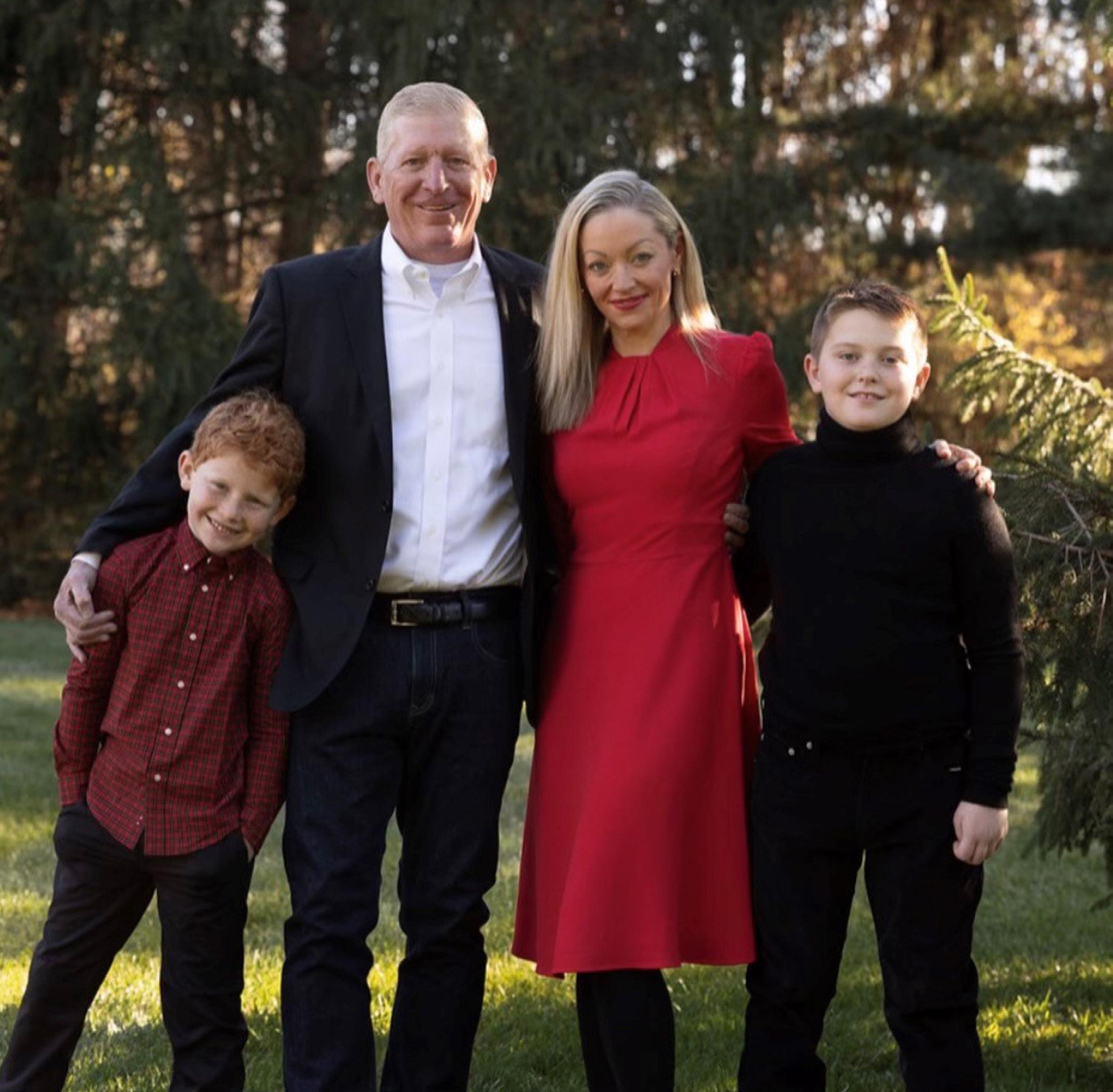
Callan is part of a two-attorney family, as his wife, Libby, serves Of Counsel in the Cincinnati office of Vorys, a 375-lawyer Cleveland-based firm with offices in the U.S., as well as London and Berlin. A graduate of the University of Miami School of Law, she formerly served as a judge on the Hamilton County Court of Common Pleas, presiding over a variety of business cases and matters in equity.
The couple, who met through mutual friends, has two boys, Patrick (10) and Andrew (8).
“They’re into all sorts of sports – soccer, football, basketball, and lacrosse,” said Callan, who coaches several of their teams in addition to serving as chair of the Recreation Commission for Indian
Hill, a village of 6,000 just minutes from Cincinnati.
“The previous chair was my neighbor, and he said I should be on the commission since I had young kids,” Callan recalled of his initial involvement. “I said fine, and within six months I was replacing him as the new chair. I think he had a plan in mind,” Callan said with a laugh.

By Tom Kirvan

Greek life on college campuses is viewed by some as a popular way for students to fraternize in a community of like-minded individuals where life-long bonds can be formed, and charitable works are encouraged.
Others see it in an altogether different light, chiefly as a campus culture framed by notorious hazing rituals and excessive alcohol consumption that periodically have led to tragic consequences for students caught in a web of misconduct.
Attorneys with Fraternal Law Partners (FLP), a division of Manley Burke in Cincinnati, have chosen to view it as an opportunity to develop a specialized law practice that over the past 12 years has found common ground between the diverging opinions, providing valuable legal counsel to fraternities, sororities, student life organizations, and their related charitable foundations on campuses across the U.S.
Founded in 2012, FLP was the brainchild of attorneys Timothy Burke, Sean Callan, and John Christopher, a trio who collectively saw the potential to develop a practice dedicated to offering “the entire scope of relevant legal services exclusively to Greek organizations and their foundations.”
FLP actually traces its roots to the 1970s when Cincinnati attorney Bob Manley began representing the Alpha Chi Omega sorority on various legal matters, according to Sean Callan, who has helped spearhead the fraternal law practice.
“Bob Manley started representing women’s sororities back in the ’70s when he had an office in the Carew Tower (in downtown Cincinnati), which just so happened to be Chi Omega’s headquarters,” Callan explained. “He would pass these women on the elevator every day and got to know them and ended up representing them.”

Eventually, after Manley Burke was formed in 1979, the firm began handling “the tax work for the charitable arms of fraternal organizations,” according to Callan, adding a related book of business that helped spur the creation of FLP.
“By that time, we had become a force in the fraternal law area, offering a unique practice that was national in scope,” said Callan.
As it has evolved, “Fraternal Law Partners provides legal counsel on business matters – real estate and housing, corporate governance, employment issues, tax, grant-making, and fundraising and stewardship support, as well as risk
management and hazing counsel, crisis and incident management, litigation, and other liability concerns,” according to the FLP’s website.
Callan acknowledged that fraternities “don’t get painted in the best light” as a result of a 2017 incident at Penn State in which a student died after consuming massive amounts of alcohol during a hazing ritual that got out of hand. The former president and vice president of the now-defunct Penn State fraternity were sentenced in October 2024 to two-to-four months in jail for their roles in the hazing that claimed the life of a 19-year-old pledge. The defendants were also placed on three years of probation
and were ordered to perform community service after originally being charged with involuntary manslaughter.
“That was a remarkably bad year for fraternities, as there were four deaths [related to hazing incidents in 2017],” said Callan. “Fortunately, it’s been better since then due to some of the anti-hazing programs that have been implemented.”
Aside from the highly publicized problems that fraternities occasionally encounter, Callan said that fraternal organizations operate much the same “as every other small business” in the country.
“They have real estate, they have contracts, and they have employee issues that any small employer does,” Callan indicated. “They also have a specialized tax problem on top of that because they are nonprofits, which involves different reporting requirements.”
Collectively, fraternities and sororities also hold “billions of dollars in prime real estate” on college campuses across the country, according to Callan.
“That’s valuable land that you can’t replicate now,” said Callan.
FLP “publishes and disseminates the leading publication devoted to the legal issues fraternities face,” titled The Fraternal Law Newsletter, and also hosts a legal conference each November where industry experts are featured.
The conference takes place at the home of the Cincinnati Reds – the Great American Ball Park – on the banks of the Ohio River.
“It’s a special venue, and we’ve had some very recognizable names at the conference, including college presidents and college general counsels who discuss
important issues facing higher education,” Callan said.
“The really fun part, of course, is that we hold it at the Cincinnati Reds stadium,” Callan noted. “When we have a cocktail hour on the opening night, it’s held downstairs next to the locker rooms, and we get the pitching coach or batting coach to come throw us batting practice so that we can travel back to our youth for a few minutes.”

By Tom Kirvan

Member Firm Charity Participation:
Beresford Booth Lawyers
Coleman & Horowitt, LLP
Collins & Lacy, P.C.
Demorest Law Firm, PLLC
Earp Cohn P.C.
Gordon Arata
Greenberg Glusker
Mandelbaum Barrett PC
Sayer Regan & Thayer, LLP
Thomas Paschos & Associates, P.C.
Widerman Malek, P.L.
Homage Senior Services
Terry's House
Oliver Gospel Mission
Forgotten Harvest
Adopt A Family Event
New Orleans Women & Children's Center
BOMA of Greater Los Angeles Toy Drive
Thanksgiving Food Drive, Build a Bike, Toy Drive
Lucy's Hearth
Sisters of Charity
Timmy V's Toys for Kids
Community Service is the last of the Sixth Pillars, and yet that standing does not lessen its importance to the mission of Primerus, according to Florida attorney Mark Warzecha, who for the past four years has served as chair of the Community Service Board for the international alliance of law firms.
That point was driven home during the organization’s Global Day of Service, an annual event in early December where Primerus firms showcased various opportunities to “give back, come

together, and be part of something bigger,” Warzecha shared.
“It’s a time to highlight the outreach efforts by Primerus firms in their respective communities,” Warzecha said. “It is tied to the United Nations International Volunteer Day, which is celebrated annually on December 5.”
Like the UN observance, the Primerus event is meant to promote the spirit of volunteerism at the local, national, and international levels, “amplifying the
importance of people-led solutions to our common challenges.”
Some of those challenges revolve around supplying food and clothing to the homeless or others simply needing assistance to maintain a basic way of life.
“Our firms engage in various community service events – food drives, clothing drives, and toy drives during the holiday season,” noted Warzecha, a partner with Widerman Malek, P.L. in the coastal city of Melbourne, Fla. “We also have firms that

Volunteers with the Widerman Malek, P.L. law firm helped at a Toy Day event in December, spreading holiday joy in the Florida community of Melbourne. Those pictured include: (l-r) Alex, Gabi, Derek, and Mark Warzecha along with Kerri Sangeleer, Morgan Black, Dee Gaug, Scott Gaug, Ariana Tellone, Heather Tellone, Tara Carroll, Rachael Langston, and Kelly Swartz. Sitting in the front is Maria Puglisi.
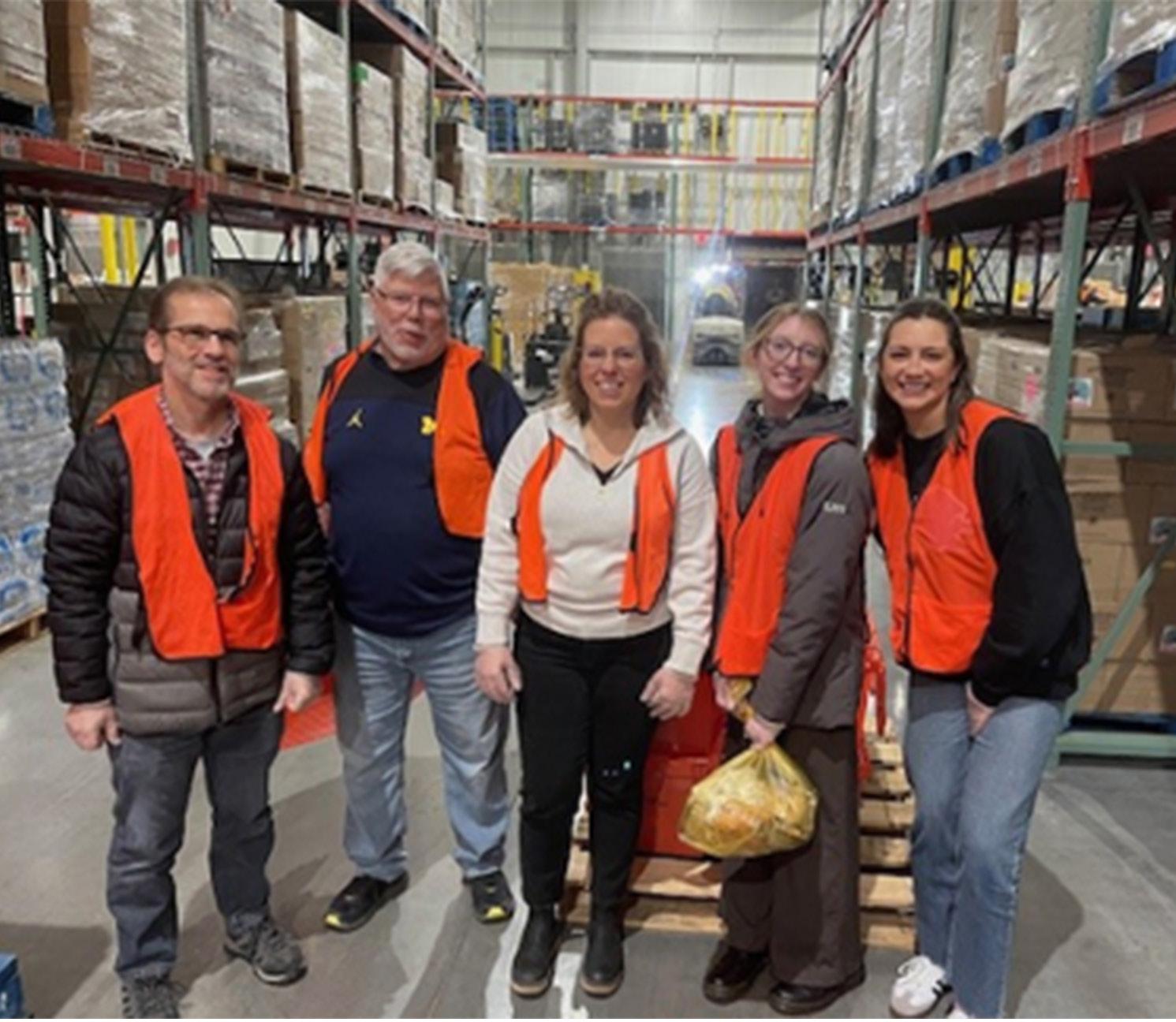
are involved in work at local food pantries to provide meals and others lending help to pack backpacks filled with school supplies for students.”
As an example of its outreach efforts, Widerman Malek annually partners with a local Toys for Kids organization to brighten the holidays for thousands of children in the community.
“The organization provided toys for upward of 3,000 families,” Warzecha indicated. “They’ve been doing it for more than 20 years now and the ‘elves,’ that’s us, the volunteers, go around this big warehouse filling up bags with toys to give to each family in need.
“I actually got my children involved in the effort the last two years,” Warzecha noted. “My 6-year-old does her own ‘shopping’ now, grabbing a bag and filling it with toys.


When you see the looks on the faces of the families receiving the gifts, it is priceless. It makes all the work worthwhile in helping spread some joy into their lives.”
The Primerus commitment to give back is a year-round proposition and extends beyond a single occurrence, according to Warzecha.
“Whenever we as an organization have a conference – whether it be the International Summit, Global Conference, or a Convocation – we have a community service project tied to it,” he explained. “It might be packing food boxes, cleaning up a beach or park, or building bikes for children. It’s a great team-building exercise that also helps the communities that host our events.”
Warzecha encourages member firms to highlight the community service work that they undertake throughout the year

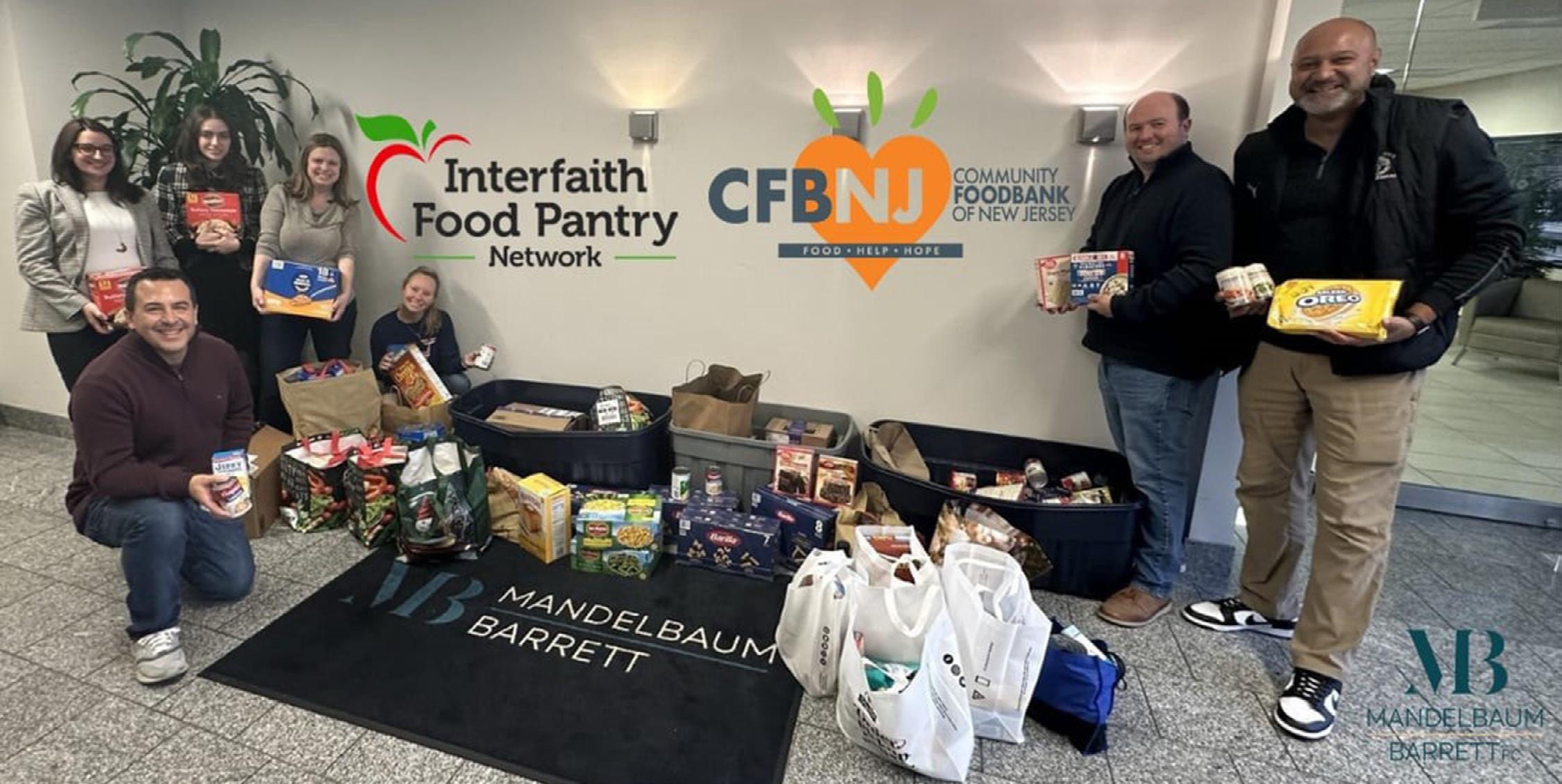
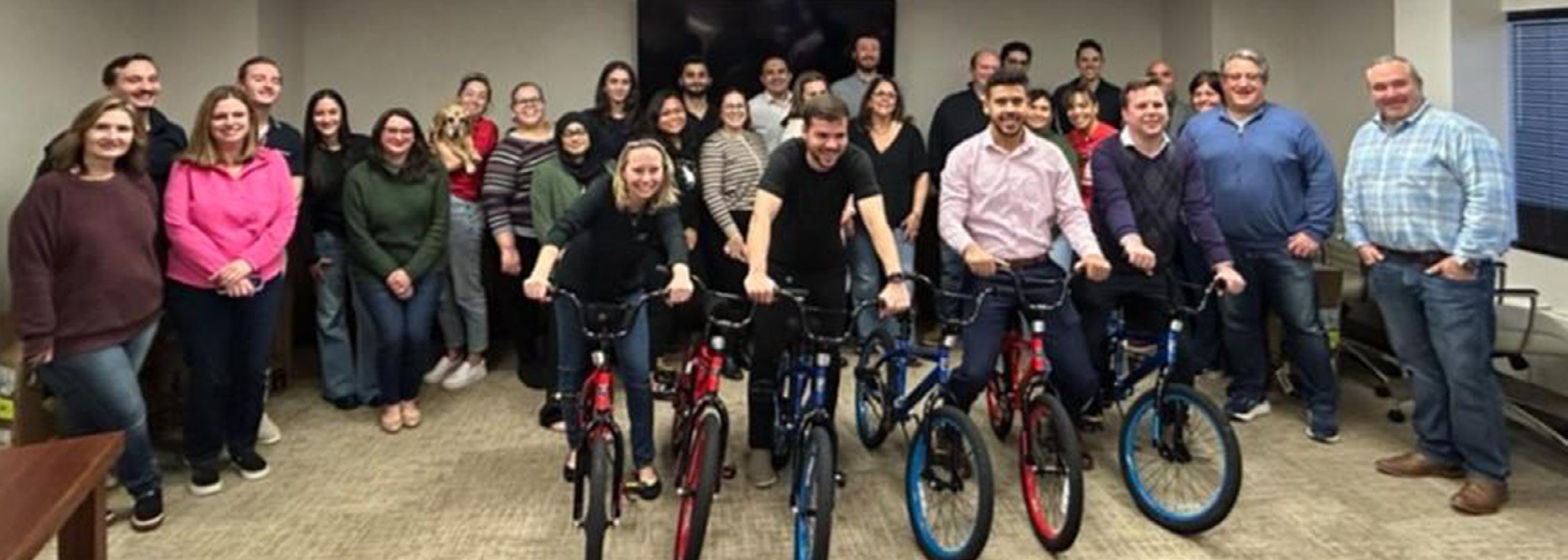
in hopes that it will inspire others to follow suit.
As an example, he said, the firm of Coleman & Horowitt, LLP in Fresno, Calif. devoted time and manpower to help the Fresno Mission and Community Food Bank. Members of the firm also pitched in on December 7 to serve meals at Terry’s House, which is affiliated with the Community Regional Medical Center in Fresno.
“There are a lot of wonderful stories to be told,” Warzecha said. “There are a lot of Primerus firms out there who should be tooting their own horn for all the good they do in the community. They need to be recognized for all that they do to help out. Giving back is part of the Primerus DNA. Part of being a ‘good lawyer’ is the responsibility of giving back to the community in a meaningful way, which we want to emphasize throughout the year, especially in respect to our Global Day
Service.”
Warzecha saluted all those who took part in the community service effort, noting how it can bolster employee morale and enhance client connections for Primerus firms.
“It can help build a positive culture for firms, inspiring everyone involved to unite to help the less fortunate in our individual communities,” said Warzecha, adding his appreciation for those firms (listed on page 28) that reported their participation in service activities.
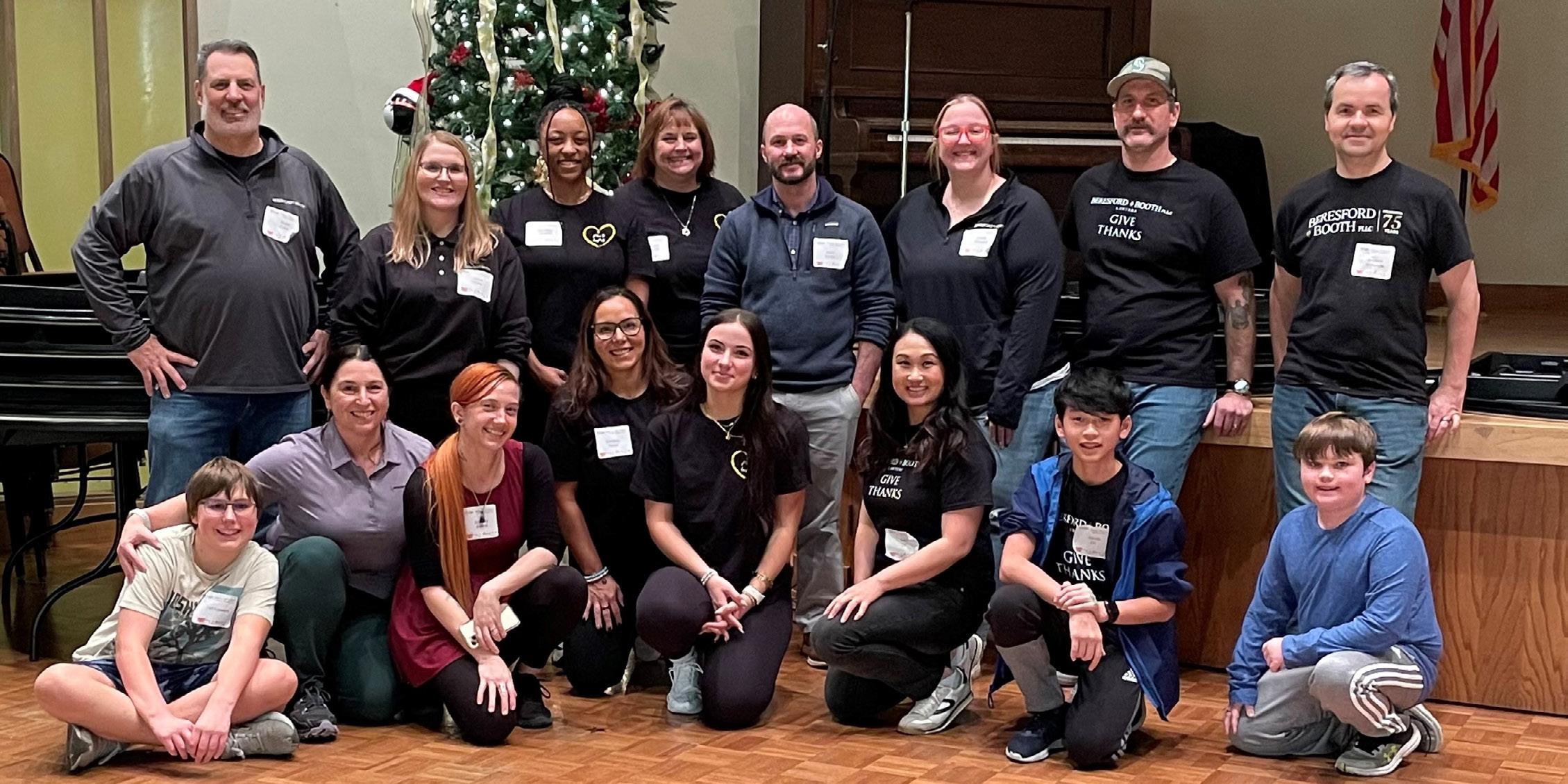
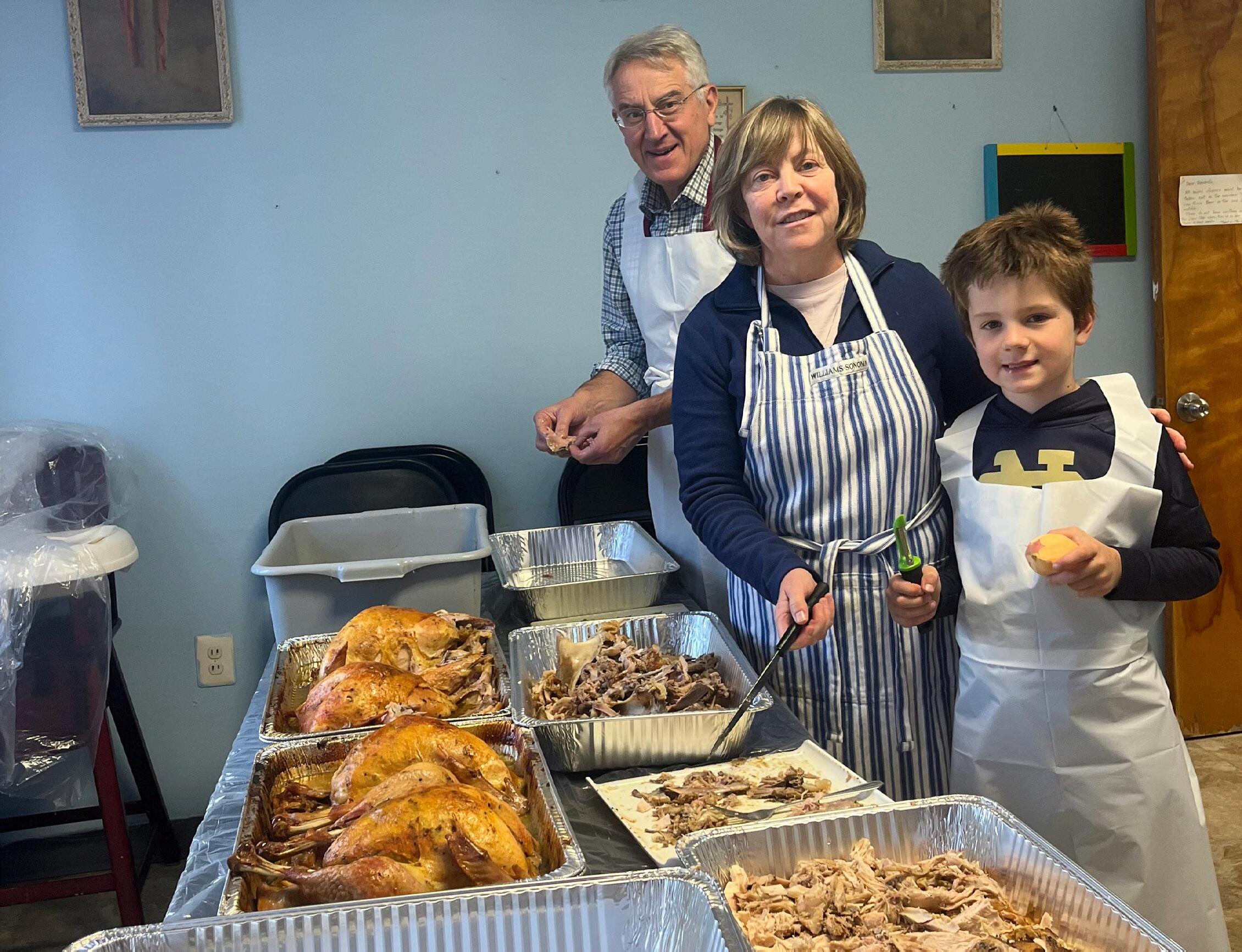


By Tom Kirvan


Peter B. Regan Managing Partner Sayer Regan & Thayer, LLP
There was a time, early in his legal career, that Rhode Island attorney Peter Regan worked on such routine real estate matters as helping a client obtain approval to build a deck on the back of his house.
Today, Regan is more apt to be helping a major luxury hotel developer navigate the sometime choppy legal waters surrounding a multi-million-dollar project that could reshape the look of downtown Newport, the picturesque seaside city long known as the “Sailing Capital of the World.”
Regan is currently representing the Procaccianti Group, a nationally known real estate investment and management company that has proposed building a three-story, 91-room luxury hotel on Bellevue Ave., which is home to several of Newport’s most famous mansion museums.
The planned Bellevue Hotel, which will be located across from the International Tennis Hall of Fame, is being billed as a place designed “to enrich the area’s allure with its upscale amenities and sophisticated ambiance, promising a new chapter in hospitality along this iconic avenue.”
As the managing partner of the Newport law firm of Sayer Regan & Thayer, LLP, Regan oversees its land use and litigation practice groups, which places him squarely in the know when high-caliber clients come calling with a need to obtain state and local zoning approvals, historic approvals, and environmental approvals.
“It’s exciting to have the opportunity to work on projects like this,” Regan said of the planned hotel. “We were recently in front of the local Historic Commission on this project, which figures to be one of the nicest hotels in Newport when completed. So, to get to the point of being able
to work on projects of this magnitude, involving hundreds of millions of dollars, is an honor and a pleasure.”
Simultaneously, the firm also is assisting a client planning to renovate a hotel on the Newport waterfront, and recently helped another client obtain approval to convert a former elementary school into 26 residential units, according to Regan, who doubles as the Town Solicitor for Middletown, a neighboring community with a population of approximately 17,000 residents.
In his role as Town Solicitor – a position he has held since 2014 – Regan is heavily involved in a wide range of building projects in Middletown.
“We’re very busy there,” Regan said of the Rhode Island town where he grew up. “We are in the process of building a new middle school and high school, along with a new library.
“It’s been a great experience to be involved in a lot of things I otherwise would not have done, such as public finance projects, labor contracts, and a large school regionalization proposal,” Regan indicated of his responsibilities as Solicitor. “I’ve had the opportunity to work with some really smart and bright people who have broadened my knowledge and understanding in certain areas.”
Regan and his three brothers spent their formative years in Middletown, where their late father, Ed, was an engineer for Raytheon, a major defense contractor. Their mother, Pia, served as a registered nurse before retiring and earlier this year celebrated her 90th birthday.
Regan ran track and cross country in high school, taking his talents for both sports to Boston College, where he competed all four years before graduating with a degree in English and philosophy in 1982. He went

to law school in Chestnut Hill, earning his juris doctor from Boston College Law School in 1985.
“I come from a family of engineers, but I did not get the engineering gene,” Regan said with a smile. “I was the ‘black sheep’ of the family as an attorney.”
He began his career with a large firm in Providence, the capital city of Rhode Island that is an hour drive from Newport.
Regan spent a year and a half with the firm before he tired of the daily commute.
“It was about a five-minute conversation with myself when I decided to take a job in Newport with a sole practitioner who was a very good attorney,” Regan said of his decision to seek a different career path.
Less than two years later, the founder of the firm decided to run for a seat in Congress, leaving Regan to either fend for
himself as a sole practitioner or to seek other options.
He took the latter approach, joining forces with Richard Sayer and his then associate Mark Thayer in 1989 to form the Newport law firm now known as Sayer Regan & Thayer, LLP.
While initially focused on real estate work to make a name for itself, the firm, over the past 35 years, has broadened its practice to include such specialty areas as
estate planning, elder law, land use, trust and estate administration, immigration law, admiralty law, corporate law, and commercial and business litigation, according to Regan.
“We’re a full-service law firm licensed in seven states,” said Regan of the scope of its multi-state coverage.
With 11 attorneys, Sayer Regan & Thayer fits the profile of a small boutique firm “where every attorney is encouraged to get the work to the person most suited for that particular job,” Regan indicated, noting that associates are “incentivized” to find the right colleague for the task rather than being inclined to “protect” their own turf.
“We’ve also encouraged everyone here to get out in the community, to be involved in worthy causes where you can meet
like-minded people and make a name for yourself,” Regan related. “It’s part of the culture that we wanted to develop with the firm.”
In that regard, Regan has been a shining example, serving as president of such organizations as the Boys and Girls Club of Newport County and the local chapter of the Salvation Army. He also coached the youth baseball, football, and basketball teams on which his two sons (Jack, 22, and Aidan, 23) played.
He and his wife, Karleen, have been married for 32 years and share involvement in church activities.
“She grew up in Newport and comes from a family with an Irish dad and an Italian mother just like me,” said Regan, noting that members of the respective
families frequently gather for weekly dinner get-togethers.
Over the summer months in years past, Regan and his wife annually played host to up-and-coming ballplayers on the Newport Gulls, which is a member of the New England Collegiate Baseball League.
“We’ve been a host family for at least 12 years,” Regan said of the enriching experience. “One summer, Will Smith, now the catcher for the Los Angeles Dodgers, stayed with us, while Kris Bubic, now a pitcher for the Kansas City Royals, was also part of our family another summer. It’s been great to follow their rise to the Major Leagues, and we really enjoyed watching them in the (2024) playoffs, especially seeing Will be part of the Dodgers winning the World Series.”


By Tom Kirvan


In teaching data protection courses at Fordham University School of Law, New York attorney Ken Rashbaum tells students considering a career in the legal realm of cybersecurity that they will enter the “golden age” upon graduation from law school.
“They’re going to have a book of business probably like no other in the years ahead,” says Rashbaum, a partner with Barton LLP, where he advises multinational corporations, financial services companies, and life sciences organizations. “Even before the Supreme Court eviscerated precedent and stare decisis, I was telling students that you can’t really rely on ‘precedent’ in this space because there isn’t much of it. The technology evolves so much faster than the law that the cases you’re looking at generally won’t involve your technology or only will on a very early version.”
“For instance, there’s almost no case law on AI [artificial intelligence]. There’s very little on crypto, so how do you keep up with all that?” Rashbaum asks.
The challenge for law students and legal practitioners alike, Rashbaum says, is to develop “frameworks for analysis” when faced with thorny questions in the digital age.
“How do you approach the question? What questions do you ask? And, of whom do you ask them? These are the questions that you need to consider before you can even think of finding a solution to problems that a business or organization may face,” Rashbaum claims.
Rashbaum, an alumnus of Hofstra University School of Law, says he got his start in handling privacy and cybersecurity issues when the Health Insurance Portability and Accountability Act (HIPAA) became law, unexpectedly opening up
an area of practice that now dominates his attention.
“I was one of the first HIPAA counsels back in 2000 when I was with Sedgwick, Detert, Moran & Arnold and served as co-chair of the firm’s e-discovery, data management, and compliance practice,” he says of the firm where he spent 19 years. “I was primarily responsible for counseling corporations on compliance with federal, state, and judicial norms governing electronic data management, privacy, and security.”
When Rashbaum joined Barton LLP in 2014, his responsibilities in helping clients with their cybersecurity awareness continued to grow, particularly as cybercriminals ratcheted up efforts to exploit those unfamiliar with the online world.
“Some of these users often lack the knowledge to protect themselves from cyberattacks, making them easy targets,” Rashbaum says. “As access to electronic information expands, the cyber threat landscape evolves alongside it. New and naïve users are prime targets for a range of cyber threats, including ransomware, phishing, and nation-state attacks.”
Rashbaum has spent years counseling clients on how to mitigate these risks, teaching them how to strengthen their overall cybersecurity posture by reducing the likelihood of large-scale breaches caused by untrained users. He has written widely on such topics, and recently collaborated with his Barton colleague, Lani Medina, to explore “Key Considerations for an AI Strategic Plan: How to Acquire and Use AI Technology Safely to Grow and Protect Your Business.” The article was published by Bloomberg Law and urges corporate leaders to develop a sound strategy before implementing new artificial intelligence tools.
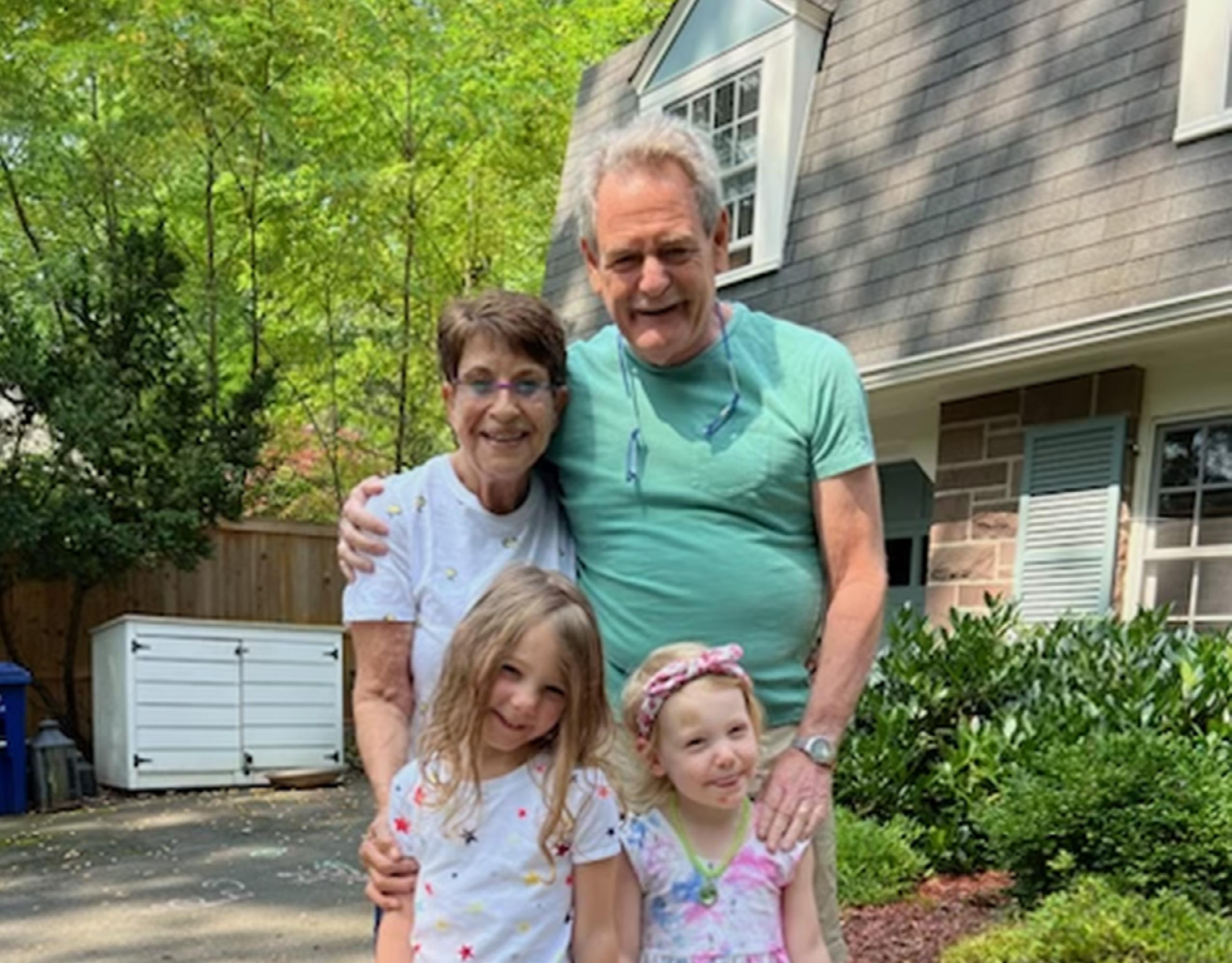
“Recognizing AI’s complexities and legal uncertainties, a meticulously crafted business plan that includes how to negotiate a favorable agreement to obtain use of the AI tool serves as a roadmap to navigate these challenges by rendering the adoption of AI technologies innovative, legally sound, and closely aligned with the company’s broader goals,” Rashbaum and Medina wrote. “The strategic, or business, plan . . . seeks to answer questions likely to be posed by those who will decide whether to acquire the AI tool and, if so, how its acquisition will be budgeted and deployed.”
In fact, Rashbaum says a majority of his new clients come to him because
“someone is offering them a very lucrative contract” if they can meet the required privacy and cybersecurity standards set by the industry or required by contract.
“I will often be asked to review and negotiate the license or service agreement, draft policies and procedures, conduct the training, and prepare retention and deletion schedules,” he explains, noting that the compliance and legal departments may “no longer be seen as cost centers” but as “revenue facilitators” instead.
“If you go to the CFO of the company and say, ‘Company A is offering us an $18 million contract if we can meet
their security standards and comply with applicable law, and it will cost us $150,000 in legal services,’ then the return on investment is pretty easy math,” Rashbaum declares. “Unfortunately, the dark side of all this is that there are new threat actors coming up with new ways to break into systems every day.”
One of the unknowns in the data protection equation is AI, says Rashbaum.
“Nobody really knows where AI is going,” he says. “As a friend of mine who works in that field says, ‘If you don’t use the initials, AI, at least three times in a meeting, then it’s not a legitimate meeting and it doesn’t count.’ AI has enormous potential to
benefit companies and organizations of all kinds. It also poses many challenges and risks. If you don’t have the person power, then you’re going to have a hard time keeping this thing under control.”
Rashbaum, a summa cum laude graduate of the State University of New York at New Paltz, began his legal career as an assistant district attorney in Brooklyn, spending three years handling a range of felony cases that ran the criminal gamut. The challenges he faced then in countering crime in a big city are now perhaps even more imposing as he deals with the growing number of evil-doers in the digital world.
Which may explain why Rashbaum seeks frequent refuge from such concerns, enjoying his time as a founding member of the “Jersey Swamp Dawgs,” a passionate group of senior cyclists in New Jersey.
“We’re a loose knit group of guys in their 50s, 60s, and 70s who typically meet Sundays for 30- to 50-mile rides and usually end up riding in or near the Great Swamp of New Jersey,” Rashbaum says.
“We have members who are 76 and 77 and they are still very strong riders. We also sometimes do weekday rides of about 35 to 40 miles.”
A former marathon runner, with such notable races as Boston and New York to his credit, Rashbaum still runs but primarily turned to cycling nearly 25 years ago when the wear and tear of running began to take a toll on his legs.
“The group has done a number of multi-day rides outside the United States,” he notes. “We were in Italy last year for six days, and we did another one in Chile in 2019. In 2001, we did a charity ride from Montreal to Portland, Maine, which was about 400 miles, and in 2002 from New York to Boston. We’ve had some great discovery and bonding experiences on the bikes.”
His passion for fitness is something that Rashbaum shares with his daughter, Alyssa Ages, a Toronto-based author, public speaker, and journalist whose work has appeared in Elle, GQ, Self, Slate, and other publications.
“She went to school at McGill in Montreal, which is where she met her husband, who is a graduate of the NYU Journalism School and now coaches entrepreneurs,” Rashbaum relates. “She has written a book, ‘Secrets of Giants: A Journey to Uncover the True Meaning of Strength’, that was published by Random House. Alyssa has run six marathons, completed an Ironman triathlon, and written fitness columns that have been published in The New York Times, The Globe and Mail (Toronto), and Outside Magazine. She does all that in addition to being a mom to two kids, ages 4 and 6. I’m very proud of her.”
Just as he is of his two stepdaughters, Jamie Silver and Samantha Rudolph. Jamie is a legal recruiter and summer camp consultant, while Samantha is commencing a position in a well-known New York museum to assist in constructing exhibits.
“We have been blessed by them and our four grandchildren,” he says.

By Tom Kirvan

en Rashbaum was “one of those people you saw covered in dust” on 9/11, minutes after the South Tower of the World Trade Center collapsed on that fateful September morning in 2001.
An attorney specializing in cybersecurity and data privacy matters for Barton LLP in New York, Rashbaum admits that he will never shake the memories from that late summer day in 2001 when America came under attack by an al-Qaeda terrorist network headed by Osama bin Laden.
“I lost a friend in the 9/11 attacks that day, so even though it happened a long time
ago, the anniversary of it is never an easy day no matter how many years go by,” says Rashbaum, a born New Yorker.
Like thousands of other commuters on 9/11, Rashbaum feels fortunate to have survived the terrorist attacks that claimed more than 2,700 lives in New York.
“My commuter train came into the station below the Twin Towers, but I was out of there before the first plane hit,” Rashbaum recalls. “I was working in an office about six blocks away and when the first plane hit, one of my law partners came over and told me about it, and we saw the flames and the huge hole in the North Tower. Our
building was evacuated after that. We were standing around when the first tower fell, and that’s when the cloud (of dust and debris) came down on us. We were just engulfed by it. It was frightening and it’s certainly something I’ll never forget.”
Several years later, Rashbaum decided to put his first-hand 9/11 experience to literary use, writing a fictionalized account of a man who miraculously survived the attacks when the two jetliners slammed into the World Trade Center complex.
The book, which was published in 2006, is titled “Someone Else Ago,” and recounts the tale of a man lost in the rubble of 9/11,
according to Rashbaum, who also is the author of two full-length screenplays.
“The man was in one of the towers when it collapsed and survived by literally riding down a hunk of concrete from one of the stairwells, but his memory was impaired from all of the blows to his head,” says Rashbaum. “It’s kind of a tone poem for New York in those days, and how he managed to find his way home and the different people he meets along the way.”
Available on Amazon, the e-book is promoted online by asking the poignant question, “What if someone you love

disappears after your last words to him were, ‘I hate you’?”
In the book, Martha Backman, 19, is the one who shouted the hate-filled phrase after learning that her father, Bob, is engaged and about to move in with his girlfriend.
“She flies into a rage, tells him she hates him and storms out of the house,” Rashbaum writes in an overview of the book. “It’s the morning of September 11, 2001.”
“Later that day, Bob is listed among the dead,” Rashbaum notes. “Martha,

remembering what she said, can’t accept that he’s gone. She recruits his fiancée, Jen, to scour the hotlines and hospitals and missing persons centers and police stations.
“Bob has escaped the falling Towers, but wanders the city disoriented and in shock,” Rashbaum writes. “Will Jen and Martha find him, and will he be the same person who left that morning?”
For the modest sum of $9.99, you can find out.

By Tom Kirvan

Figuratively speaking, it’s a long way from the life of a wildlife scientist to that of a corporate attorney, but Malta native Nathan Adams has made a swift and seamless transition to his two-pronged role in the legal profession for the Canadian-based law firm of Mann Lawyers LLP.
After spending the bulk of his career in wildlife conservation and sustainable development work in various remote regions of the world, Adams decided to shift career gears in the wake of the COVID-19 pandemic, opting to pursue a law degree from the University of Ottawa in the capital city of Canada.
“The fun part was that I was in a cohort of students who completed law school nearly entirely remotely from home. This, alongside my two daughters attending kindergarten and my wife retraining at college all virtually from our small apartment,” Adams said with a grin.
“Prior to that, my job at the time in 2019/20 was coordinating wildlife and biodiversity research projects across the entire planet for hundreds of high school and undergraduate students in South Africa, Indonesia, Romania, Croatia, Honduras, Peru, and Mexico. At the same time, I was working at the United Nations Association in Canada securing

international internships for Canadian youths at UN Agencies worldwide, including UNICEF, WFP, UNEP and others, and all that was going very well. And then the pandemic hit, and global travel came to a standstill.”
Thus, Adams – like millions of others around the globe – was at a career crossroads, weighing possible paths to making a career change.
“The funny part was that I actually applied to law school and wrote my LSAT without being convinced that I would go to law school,” he explained. “I did that to have a back-up plan. So, when the pandemic

hit a year later, I decided to go back to school to retrain and pivot from a career in environmental science to a career in environmental law.”
During his undergraduate studies, Adams met his wife, Katie, while they were working as wildlife scientists in Indonesia where he was conducting biodiversity research projects. Before graduating, Adams secured a Global Grant Scholarship from the Rotary Foundation, fully funding his Master of Environmental Science program at the University of Toronto, allowing him and his young family to immigrate to Canada in 2016.
“I used to live in a tropical rainforest for months at a time with no power, no running water, and no electricity,” Adams said in matter-of-fact fashion. “Katie and I were both volunteer wildlife scientists for an organization called Operation Wallacea, which is a network of universities who design and implement research programs at biodiversity hotspots worldwide.
“My professional career over the past 10 to 15 years has been exclusively focused on environmental matters, climate change issues, sustainable development, and global environmental security work,” Adams indicated.

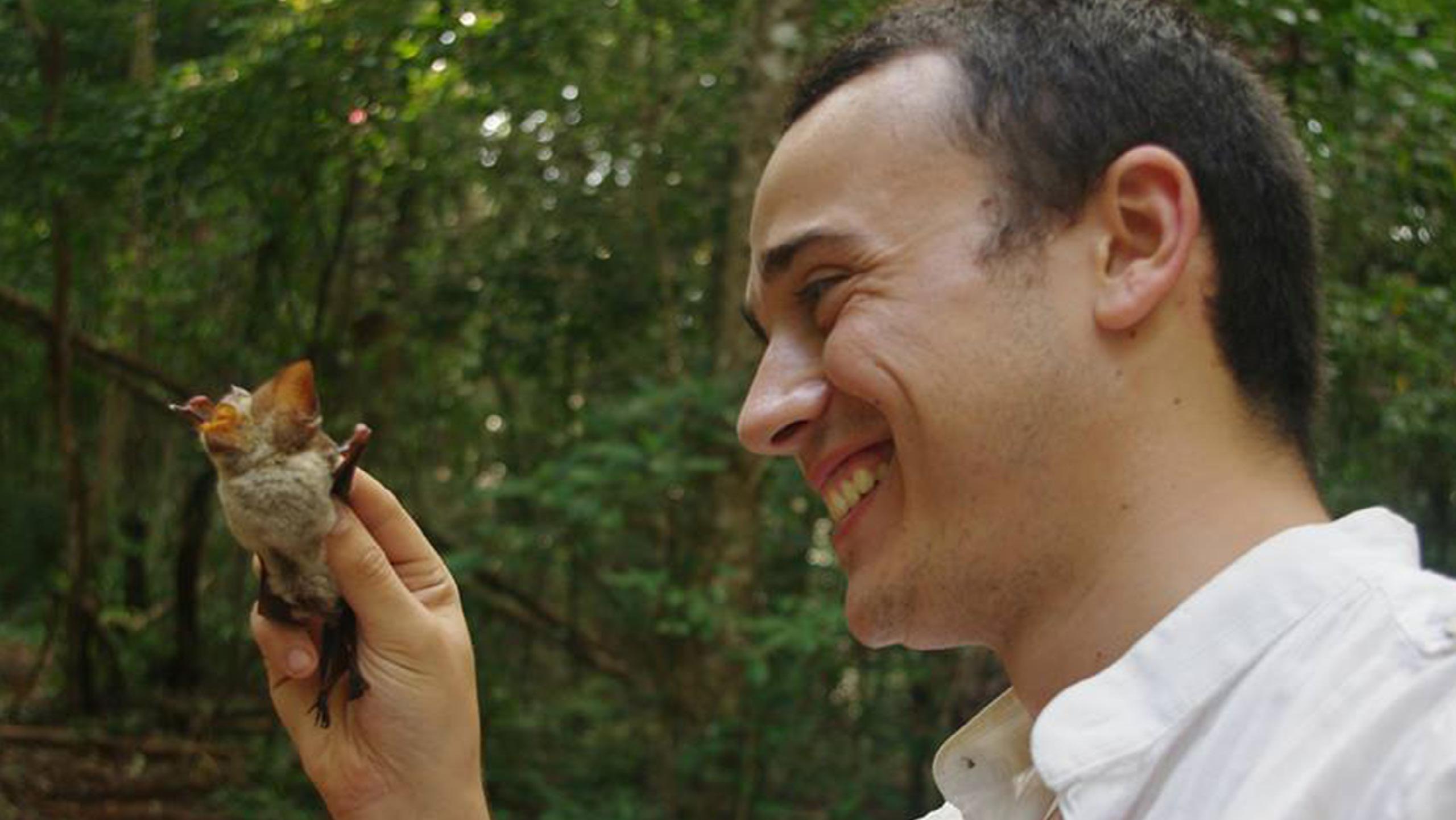
His interest in the environment began as a student at the University of Malta, a college with an enrollment of approximately 12,000.
“I founded a student organization there focused on environmental issues,” said Adams. “I was 18 at the time and the organization was called Youth for the Environment.”
And to “practice what I was preaching,” the magna cum laude graduate opted to join a wildlife conservation research expedition in Indonesia.
“I chose that site because it was basically on the opposite side of the planet,” Adams said of his reason for relocating to the country that is the world’s largest archipelagic state with more than 17,000 islands. “I went there and conducted research on snakes, bats, primates, reptiles, and amphibians. And I did that for four straight summers. The data I collected was published in a scientific peer reviewed journal, and that’s how my
interest in environmental matters and wildlife started off.
“Now, fast forward 10 to 15 years later and I’m working chiefly as an environmental lawyer,” Adams related. “My legal experience includes preparing for tribunal hearings and defending against environmental civil lawsuits and regulatory prosecutions. This combination of scientific and legal experience allows me to effectively handle a wide range of corporate and environmental matters for my clients.”
During law school, Adams served as a legislative intern at the Senate of Canada. While working at Canada’s Parliament, he wrote speeches and supported a Senate committee study on Bill S-250 legislating against the forced and coerced sterilization of Indigenous women. During his post-grad studies, Adams worked at the Canadian federal Commissioner of the Environment and Sustainable Development, co-authoring biodiversity and climate change-related legislative reports for Parliament.
“Outside my professional life, I am also a musician and an active member of the Rotary,” Adams said of his leisure time interests. “In addition, I mentor current students and future leaders through the University of Toronto Partners in Mentorship Program.”
In the meantime, Adams said he feels blessed to get plenty of opportunities to use his science background at Ottawabased Mann Lawyers.
“I still get to use that science gene in my work in environmental law, as we’re always dealing with contamination issues and the impacts on businesses,” he explained. “You need to understand what the contaminants are, the concentration levels, and how their movements impact the groundwater and aquifer. So, it works out as a perfect marriage between environmental science and environmental corporate law, where I can bring my unique background to the legal work.”
Alphabetical by Country/Province/State
Asia Pacific
Australia
Carroll & O’Dea Lawyers
China
HJM Asia Law & Co LLC
Pamir Law Group
Watson & Band
Hong Kong
ONC Lawyers
India
Sarthak Advocates & Solicitors
Japan
GI&T Law Office
Pakistan
Meer & Hasan Law Associates
Singapore
HJM Asia Law & Co LLC
Taiwan
Pamir Law Group
Vietnam
Bross & Partners
Austria
OBLIN Rechtsanwälte
Cameroon
Neneng Law Office
Cyprus
AMG Mylonas & Associates, LLC
France
Jasper Avocats
Germany
Broedermann Jahn
Ghana
Legalstone Solicitors
Greece
Bahas, Gramatidis & Partners
Guinea
ASK AVOCATS
Ireland
Sweeney McGann Solicitors
Italy
FDL Studio legale e tributario
Kenya
Njoroge Regeru & Company
Lebanon
SAAS Lawyers
Lesotho
Kleingeld Attorneys
Malawi
Sauti & Company
The Netherlands
Russell Advocaten B.V.
Slovenia
JK Law ltd.
Spain
Dr. Frühbeck Abogados S.L.P.
North Legal
Switzerland
Suter Howald Rechtsanwälte
Tunisia
Adly Bellagha and Associates
Turkey
Kavasoğlu Law Firm
Uganda
Angualia Busiku & Co. Advocates
Ukraine
Serafim Lawyers
United Kingdom
Marriott Harrison LLP
Zimbabwe
Mhishi Nkomo Legal Practice
Alphabetical by Country/Province/State
Argentina
Badeni, Cantilo, Carricart & Bilbao
Belize
Quijano & Associates
Brazil
Terciotti Andrade Gomes Donato Advogados
British Virgin Islands
Quijano & Associates
Chile
Magliona Abogados
Colombia
Pinilla, González & Prieto Abogados
Costa Rica
Guardia Montes & Asociados
Cuba
Dr. Frühbeck Abogados S.L.P.
Guatemala
Iurisconsulti Abogados y Notarios
Honduras
Ulloa & Asociados
Mexico
Cacheaux Cavazos & Newton
Panama
Quijano & Associates
Perú
Llona & Bustamante Abogados
Trinidad & Tobago
Martin George & Co.
Canada
Manitoba PKF Lawyers
Ontario
Mann Lawyers LLP
United States
Alabama
Ball, Ball, Matthews & Novak, P.A
Christian & Small LLP
Alaska
Landye Bennett Blumstein LLP
Arizona
Burch & Cracchiolo, P.A.
California
Brothers Smith LLP
Coleman & Horowitt, LLP
Demler, Armstrong & Rowland, LLP
Dillingham & Murphy, LLP
Ferris & Britton, A Professional Corporation
Greenberg Glusker
Law Office of Blane A. Smith
Wilke Fleury LLP
Colorado
Ogborn Mihm LLP
Timmins LLC
Zupkus & Angell, P.C.
Connecticut
Brody Wilkinson PC
Szilagyi & Daly
Delaware
McCollom D’Emilio Smith Uebler LLC
Florida
Agentis
Bivins & Hemenway, P.A.
Nicklaus & Associates, P.A.
Ogden Sullivan Stover & Saar, P.A
Padula Bennardo Levine, LLP
Saalfield Shad, P.A.
Widerman Malek, P.L.
Georgia
Krevolin & Horst, LLC
Hawaii
Yamamoto Caliboso LLC
Illinois
Kozacky Weitzel McGrath, P.C.
Lipe Lyons Murphy Nahrstadt & Pontikis Ltd.
Roberts Perryman P.C.
Indiana
Hackman Hulett LLP
Alphabetical by Country/Province/State
Kentucky
Eddins Domine Law Group, PLLC
Louisiana
Degan, Blanchard & Nash, PLC
Gordon Arata
Hargrove, Smelley & Strickland
Maine
The Bennett Law Firm, P.A.
Maryland
Thomas & Libowitz, P.A.
Massachusetts
Rudolph Friedmann LLP
Michigan
Buchanan Firm
Cardelli Lanfear Law
Demorest Law Firm, PLLC
McKeen & Associates, P.C.
Minnesota
Bernick Lifson
O’Meara Wagner P.A.
Mississippi
Young Wells Williams P.A.
Missouri
Roberts Perryman P.C.
Rosenblum Goldenhersh
Montana
Datsopoulos, MacDonald & Lind, P.C.
Nevada
Sklar Williams PLLC
Winner & Booze
New Hampshire
The Bennett Law Firm, P.A.
New Jersey
Earp Cohn P.C.
Mandelbaum Barrett PC
Thomas Paschos & Associates, P.C.
New Mexico
Hinkle Shanor LLP
New York
Barton LLP
Coughlin & Gerhart, LLP
Lewis Johs Avallone Aviles, LLP
North Carolina
Smith Debnam Narron Drake Saintsing & Myers, LLP
Ohio
Manley Burke
McNeal, Schick, Archibald & Biro Co., L.P.A.
Schneider Smeltz Spieth Bell LLP
Oklahoma
Fogg Law Firm
The Handley Law Center
Smiling, Smiling & Burgess
Oregon
Haglund Kelley, LLP
Pennsylvania
Earp Cohn P.C.
Law Offices of Thomas J. Wagner, LLC
Robb Leonard Mulvihill LLP
Rhode Island
Sayer Regan & Thayer, LLP
South Carolina
Collins & Lacy, P.C.
Rosen Hagood
South Dakota
Lynn, Jackson, Shultz & Lebrun, P.C.
Tennessee
Cornelius & Collins, LLP
Texas
Donato, Brown, Pool & Moehlmann, PLLC
Downs & Stanford, P.C.
Moses, Palmer & Howell, L.L.P.
Stephenson Fournier
Thornton, Biechlin, Reynolds & Guerra, L.C.
Virginia
Goodman Allen Donnelly
Wharton Aldhizer & Weaver, PLC
Washington
Beresford Booth Lawyers
Johnson Graffe Keay Moniz & Wick, LLP
West Virginia
Hendrickson & Long PLLC
Wisconsin
Kohner, Mann & Kailas, S.C.
Wyoming
Gary L. Shockey, PC

































































































